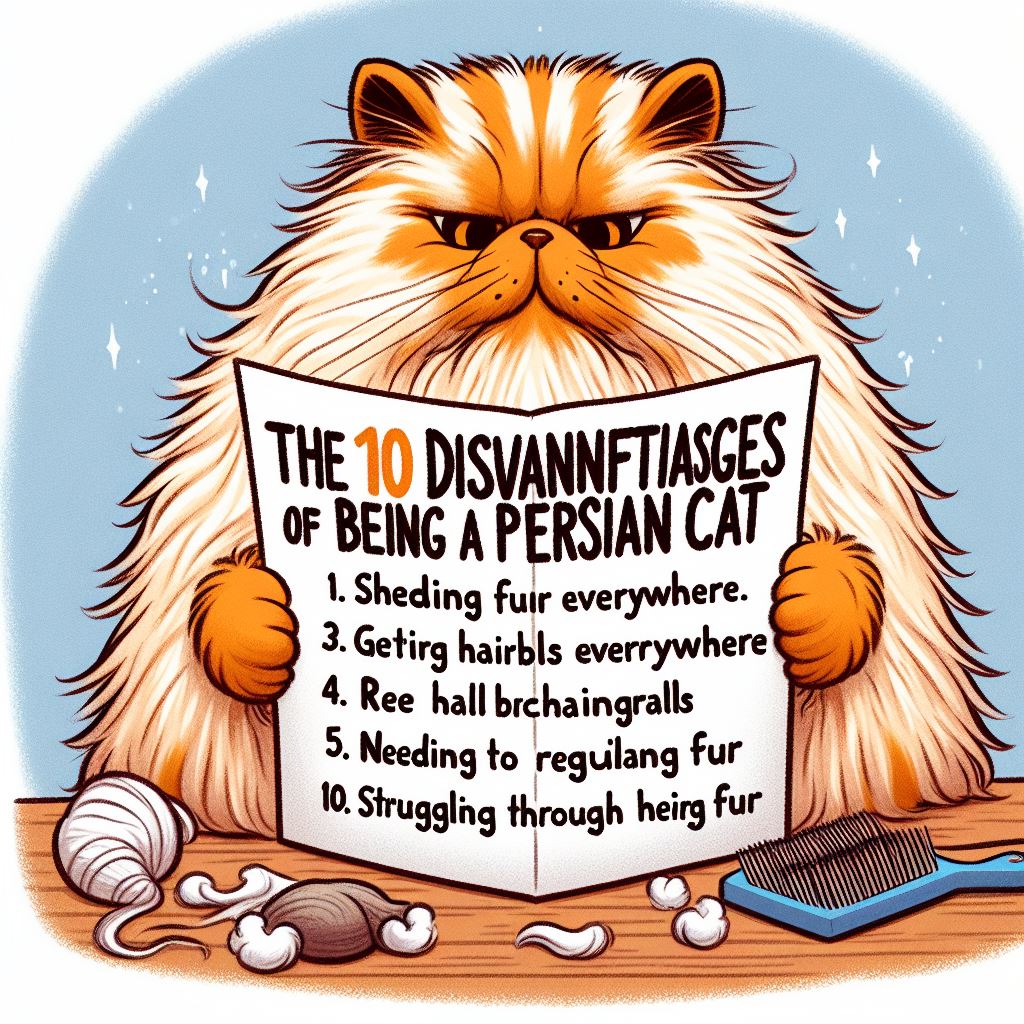Persian cats require extensive grooming and are prone to health issues. They can also be less energetic and playful.
Persian cats are known for their luxurious coats and sweet personalities. Their long, silky fur demands regular grooming to prevent matting and tangles. Potential owners should be prepared for frequent brushing and occasional professional grooming sessions. Persian cats also face several health problems, such as breathing difficulties due to their flat faces and susceptibility to eye conditions.
Despite their calm demeanor, they may not be as playful or energetic as other breeds. These characteristics make Persian cats a high-maintenance choice, suitable for those who can commit to their care and enjoy a more relaxed feline companion.
Health Issues
Persian cats often suffer from respiratory problems. Their flat faces make it hard for them to breathe. They may snore or have noisy breathing. Sometimes they need surgery to fix these issues. Owners must be aware of this risk.
Persian cats have large, round eyes. These eyes are prone to tearing and infections. They may also suffer from corneal ulcers. Regular cleaning of their eyes is necessary. Some cats may need medication to keep their eyes healthy.

Credit: www.ipetprints.com
Grooming Needs
Persian cats need daily brushing to keep their fur from matting. Their long hair can get tangled easily. Regular brushing helps keep their coat clean and shiny. Brushing also reduces shedding around the house. Without daily care, their fur can form painful knots. These knots can lead to skin infections. Brushing should be a part of your daily routine.
Persian cats need baths once a month to stay clean. Their fur can get oily and dirty over time. Regular baths help remove dirt and grease. Use a cat-friendly shampoo for their sensitive skin. Make sure to rinse thoroughly to avoid residue. Dry them well to prevent cold and dampness. Bathing can be a challenge, as cats often dislike water.
Shedding Concerns
Persian cats shed a lot of hair. You will find hair on your furniture and clothes. This can be annoying and hard to clean. Regular grooming is needed to manage the shedding.
Persian cats can trigger allergies. Their fur and dander can cause sneezing and itching. People with allergies might find it hard to live with a Persian cat. Keeping the house clean can help reduce allergic reactions.

Credit: www.ipetprints.com
Temperament Challenges
Persian cats often display a strong sense of independence. They may not always seek out human interaction. This independence can sometimes be mistaken for aloofness. Owners might find it challenging to bond with them. Persian cats can also be quite stubborn. Training them requires patience and consistency.
These cats can have socialization difficulties. They might not get along well with other pets. Introducing them to new environments can be a struggle. Persian cats may also exhibit signs of anxiety around strangers. Early socialization is crucial for better adaptability. Ensuring a calm environment can help them feel secure.
Cost Factors
Persian cats often need many visits to the vet. They are prone to health issues like respiratory problems. These visits can be very expensive. Regular check-ups are also necessary. This adds to the overall cost. Special treatments might be required. These treatments are not cheap.
Persian cats have long, thick fur. They need regular grooming to keep their coat clean. Professional grooming services can be quite costly. Daily brushing is also important. This can take a lot of time. Special grooming tools might be needed. These tools can be expensive.

Credit: m.youtube.com
Space Requirements
Persian cats need a lot of space to roam. They love to explore every corner of the house. Small apartments can make them feel trapped. A big home with many rooms is ideal. It helps them stay active and happy.
Persian cats enjoy their personal space. A quiet spot to rest is important for them. They might get stressed in busy homes. A calm and peaceful area helps them relax. It is essential for their well-being.
Dietary Needs
Persian cats need high-quality food. They often require special diets due to their sensitive stomachs. Some Persians can develop allergies. A balanced diet is crucial for their health. They benefit from wet food as it helps hydration. Dry food can be tough to chew for some Persians. Supplements might be needed for extra nutrients. Always check with a vet before changing their diet.
Persian cats need to be fed multiple times a day. Small, frequent meals are better than one large meal. This helps prevent obesity and digestive issues. Consistent feeding times can help maintain their health. Free feeding can lead to overeating. Always provide fresh water alongside their meals. Monitor their weight to adjust portions if needed.
Behavioral Issues
Persian cats often exhibit behavioral issues like excessive grooming and litter box problems. They may also display signs of separation anxiety.
Litter Box Problems
Persian cats can have litter box problems. They may refuse to use the litter box. This can be due to their long fur. Litter can get stuck in their fur. It can also be due to stress or anxiety. Persian cats need a clean litter box. They are very particular about cleanliness. Owners must clean it daily.
Scratching
Persian cats love to scratch. They may scratch furniture or carpets. Scratching is a natural behavior. It helps them to sharpen their claws. It also helps to mark territory. Owners should provide scratching posts. These can help save your furniture. Training them early is very important.
Frequently Asked Questions
What Are The Cons Of Having A Persian Cat?
Persian cats require frequent grooming due to their long fur. They are prone to respiratory issues and eye problems. High maintenance and vet costs can add up. They shed a lot, which may cause allergies.
What Is Persian Cat Weakness?
Persian cats are prone to respiratory issues due to their flat faces. They also need regular grooming to prevent matting.
Do Persian Cats Have More Health Problems?
Yes, Persian cats often face more health problems. They are prone to breathing issues, dental disease, and kidney problems. Regular vet check-ups are essential.
What Is The Controversy With Persian Cats?
The controversy with Persian cats involves their health issues due to brachycephalic features. Breeding practices often cause respiratory problems and eye issues.
Conclusion
Considering a Persian cat requires understanding their unique needs. Their grooming demands and health issues can be challenging. Potential owners must be prepared for these responsibilities. Despite the disadvantages, many find their companionship rewarding. Make an informed decision to ensure a happy and healthy pet relationship.

Hello, this is Frank Swanson, the owner, and operator of Pet Info Hut. I created this website as a way to share my love of pets with the world. I have over 7 years of experience working with animals, and I have a passion for helping people care for their pets. I hope that you find my website useful and informative. Thanks for visiting!
